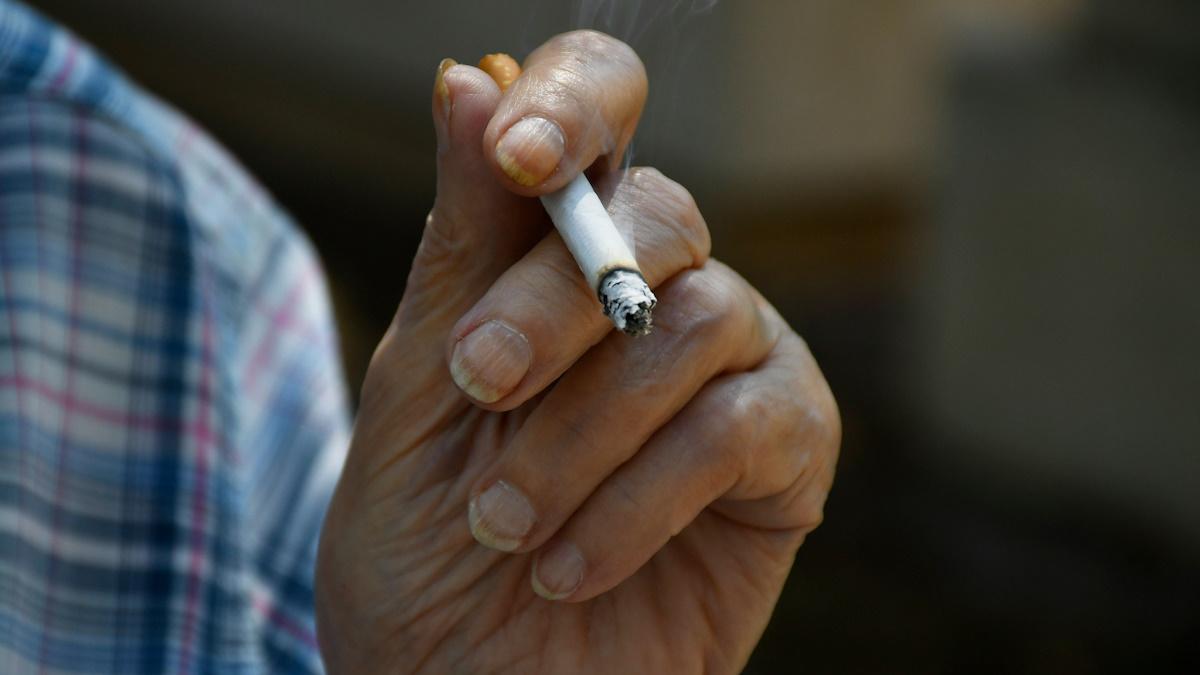NHS England relaunches anti-smoking pill programme

A daily pill that helps people stop smoking is to be offered by the NHS in England once again after it was withdrawn from sale in 2021 due to quality issues.
A new generic version of varenicline – originally sold in the UK as Champix by Pfizer – has now been approved for use by the health service and could help "tens of thousands" of smokers quit, according to NHS England, which has called it a "vital step" in the plan to shift the health service towards prevention.
Varenicline works by reducing cravings for nicotine and blocking its effect on the brain, while also helping with withdrawal symptoms such as feeling irritable or having difficulty sleeping, and is said to be more effective than nicotine replacement gum or patches.
The generic from drugmaker Teva – which has been on the market in other countries for several years – was recently approved by the Medicines and Healthcare products Regulatory Agency (MHRA), clearing the way for varenicline's return to NHS use at a price agreed with the company.
Champix and another oral smoking cessation therapy, GSK's Zyban (bupropion), saw restrictions placed on their use after they were found to contain potentially toxic contaminants. Zyban has since been reintroduced by GSK, but remains in limited supply and is not on the preferred medication list. There has, meanwhile, been no word from Pfizer on a relaunch of Champix.
Another pharmacological option that was announced earlier this year – Consilient Health's cytisine – has also been approved by the MHRA and is under review by the National Institute for Health and Care Excellence (NICE) to see if it is cost-effective for NHS use.
NHS chief executive Amanda Pritchard is due to formally announce the decision to make varenicline available alongside behavioural support services at the NHS Providers annual conference in Liverpool later today as part of a drive to make more effective treatment options available for smokers trying to quit, while delivering over £500 million in savings for the taxpayer.
Research by University College London (UCL) has suggested that widespread use of varenicline on the NHS could help over 85,000 people try to stop smoking each year and its use over the next five years could prevent up to 9,500 smoking-related deaths.
Meanwhile, an analysis by NICE of the impact of Champix when it was available found that, for every £1 spent on the drug, £1.65 was saved through the prevention of smoking-related illnesses. The generic will also be cheaper, so the return on the use of Teva's product should be greater.
The programme comes alongside a decision by the new Labour government to reintroduce a plan, initially proposed by the previous Conservative administration – to ban anyone born after January 2009 from buying cigarettes, as part of a plan to create a "smoke-free generation."
Smoking is estimated to cost the UK economy up to £17 billion a year, through smoking-related lost earnings, unemployment, early deaths, and costs to the NHS.
Smoking-related illness also accounts for one hospital admission every minute and up to 75,000 GP appointments each month. Around one in eight adults – six million people in the UK – are smokers.
Photo by Çağlar Oskay on Unsplash











